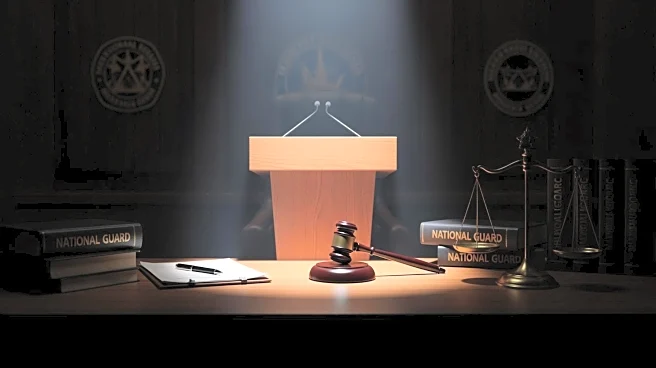What's Happening?
Oregon U.S. District Judge Karin J. Immergut has extended two temporary restraining orders preventing President Trump from deploying National Guard members to Portland. The extension lasts for two weeks
as parties await a decision from the 9th U.S. Circuit Court of Appeals regarding the initial order's validity. The restraining orders were initially issued in response to concerns over federal intervention in local matters, particularly in Portland, which has been a focal point for protests and civil unrest.
Why It's Important?
The extension of the restraining orders underscores ongoing tensions between federal authority and state sovereignty, particularly in the context of civil unrest and protest management. The decision reflects broader national debates about the role of federal forces in local jurisdictions, with implications for civil liberties and state rights. The outcome of the appeals court ruling could set a precedent for similar cases across the U.S., affecting how federal and state governments interact in crisis situations. Stakeholders, including local leaders and civil rights groups, are closely monitoring the situation, which could influence future policy decisions regarding federal intervention.
What's Next?
The 9th U.S. Circuit Court of Appeals is expected to rule on the validity of Judge Immergut's initial order, which could either uphold or overturn the restraining orders. Depending on the outcome, there may be further legal challenges or adjustments in federal and state strategies for managing protests. Local leaders and civil rights organizations are likely to respond to the ruling, potentially influencing public opinion and policy discussions on federal intervention in state matters.











